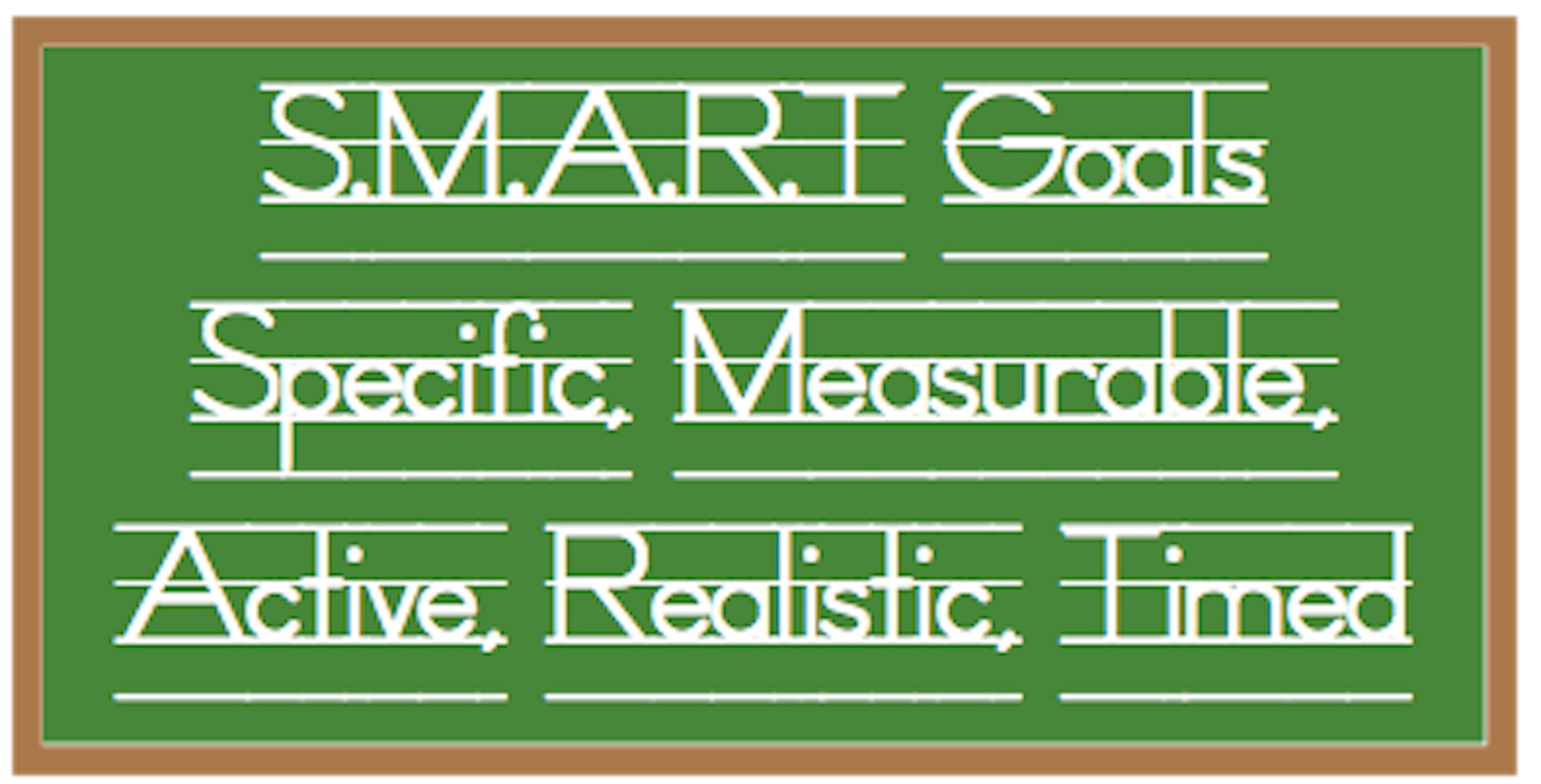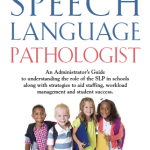Administrators: Know Your SLP’s

The biggest mistake administrators make is not getting to know their professionals. Often based on the decisions you make, things you say in meetings or even off handed comments you make it is clear to Speech Language Pathologists that you have no idea what we do, how knowledgeable we are, the resources we need to do their job better or even areas we address. When making big decisions especially those that involve procedure get your staff involved. You might be surprised at what your staff can offer. Teachers and other professional staff such as SLP’s can often be a feather in your cap if you listen to them rather than immediately disagree with them.
Learn the roll of every staff member and professional in your building or school. You never know when someone might have special training or experience to get you through a rough situation. Listen to what your staff has to say even if it’s an opinion. Successful administrators and school boards cannot have a myopic point of view. I’ve seen this happen and it does not create a strong, successful school system.
SLP’s are extremely knowledgeable. Our expertise goes beyond articulation therapy. We have training that goes way beyond academics. We know how the brain and body function together. We can pick out specific difficulties in children that can make life long differences if not remediated. We know about auditory development (not just hearing) and what happens to students who have difficulty with auditory processing, discrimination etc. We know immediately when your school system has a poor phonics program. We work on language development with severely autistic children, children with non-verbal learning disabilities and everything in-between. We work with children who have specific learning disabilities with average cognitive skills and those children who are severely learning impaired with low cognitive skills. Unless you’ve studied higher level language development you don’t have a clue it’s missing until it is almost too late. This list only hits the tip of the iceberg. I could go one and on ….. but I think you get the point.
Get to know you SLP’s and other professionals. Ask the questions and listen to them. It will only make you a better administrator.
Teresa
When does a Middle School Child need a Speech and Language Evaluation-reprint
Hi Everyone.
I have to apologize for being so lax about posting. I had the grandest plans for this month, writing about the speech and language assessment process. Well to make excuses, I can tell you that work has exploded. I work part time for a school system doing evaluations and they’ve decided to move up their time line on all of the evaluations. I actually think it’s a great idea but it shoves more work into my limited time. And lets not forget those pesky report write up that mostly take place at home. I also picked up another wonderful part time job at a vocational high school which will be a new experience for me. They too have me testing to meet deadlines.
Since I love evaluating I don’t mind being busy but that leaves little time for other ventures. Today I’m going to recycle a post from last January. It has an evaluation theme so it fits my plan. When does a Middle School Child need a Speech and Language Evaluation
It’s still not too late to participate in my survey on speech and language assessment. Right now I am putting together a report on the data gathered and I can always include more. Assessment Survey
Hope everyone enjoys their weekend. Around here it’s the calm before the storm and we will be securing lawn chairs this afternoon.
Teresa
Easy Report Writing?
Is there such a thing? If you think I have the answer you’d be wrong. You haven’t heard from me in awhile because I am in the throws of report write ups. When you’re a school therapist you don’t have the luxury of clinics who will take months sometimes to write up a report. We have deadlines and they have to be met. However, I am a procrastinator and almost always wait till the last minute to pull things together. Luckily the due dates for the report write up and the actual meeting are usually a few days apart because unlike clinics that drop their reports off at our doorstep, we still have to write up the educational plan in time for the meeting.
Even after so many years of experience report writing is still extremely time consuming for me. I often wonder if I write too much, try to be too specific, write too slow or do too much testing? When I worked a full time school job, I was lucky if I had 2-4 hours in my week devoted to testing. Since it takes at least 2-4 hours to properly test any student and anywhere from 2-6 hours to write up a thorough report, if you have one or more a week, there is a lot of paper work to do at home.
Here are some suggestions to speed up your report write ups.
1. Work From a Template: Take the time to design your own evaluation template. Create a heading. It’s really nice when the whole department uses the same heading it looks more professional. I’ve only worked with a couple of department heads that supported this idea.
a. Arrange your template in a manner that makes sense to you. I personally like reporting test by test rather than by skill. I’ve seen evaluations arranged by receptive subtests and then expressive subtests. I personally find that hard to follow. If I want to compare similar skill areas I will do that in my summary. I find that to be a more organized way to talk about strengths and weaknesses.
b. Make sure your template has only generic information in it. This saves time switching information. I use a filler for the students name to make changing easier. If you’re really efficient have a boys and girls version so your he’s and she’s don’t get mixed up.
c. In my template I have test/task descriptions as initial paragraphs. I may include scoring information and results as part of the template.
d. Tweak your template as often as you need to. This will save time consuming changes when you are writing your report.
e. Make sure charts are uniform. This is my downfall and it looks bad. Over the years I’ve made individual templates for each test, probably in Microsoft. Now I use a mac and the charts are not uniform. A goal of mine this year is to update my charts.
f. It’s always quicker to take away than add. I keep a list of the tests I use frequently in my template. I also have a paragraph explaining the gap when comparing the PPVT and EVT. It’s there if I need it cut out if I don’t.
2. Finding Time: Face it there is never enough time and few realize how time consuming this can be.
a. If you can’t get a long block to write in try to work in blocks of tests or subtests. I found that’s one way that I can get chunks actually completed.
b. If I have to skip over a section because I either don’t have the information or the time to write up a big section, highlight the section you missed. That makes it easy to go back and fill in information.
c. When writing up subtests I often begin thinking of what I want to say in the summary. I use to keep those notes on a separate piece of paper. Now I just quickly scroll down to the empty summary and jot a quick idea.
3. Spend more time and effort on writing a good summary and recommendations: Ultimately, this is the information people want.
a. Right after I look at the test scores my eyes go immediately to the summary. The summary is the section most people are interested in. If they remember anything about your report it will be the summary so make sure that section look and sounds good.
b. Don’t write cookie cutter recommendations. Those are recommendations that are the same for every student. If a school or staff is familiar with your work they will totally not follow your advice if it is the same for every student.
c. Write recommendations that have a good chance of being used in the school setting. This is very good advice especially for outside evaluators. Many time the recommendations suggested by outside evaluators to a school are grandiose and almost impossible to implement in a school setting. That isn’t to say that schools don’t need a push once in awhile or can’t learn new methods. The do and they have to.
4. Don’t over think. Trust your skills: Your professional judgement is probably better than you think.
a. This is another area where I fall short. I am so worried about missing something especially with a complicated student that I spend more time analyzing test results and performance than I should. I do this because I often feel that manner of performance is often as or more important and revealing than test scores or other isolated data. (That of course is a conversation for another day). Never hesitate to comment on manner of performance it adds so much to the evaluation and makes it more personal.
b. Yes we all proof and edit but we are not professional copywriters or editors. We are bound to make mistakes no mater how many times we have proofed and edited. It is embarrassing to find an error in my report during the presentation but it’s occasionally bound to happen. Usually it’s just a simple typo and not a major contradiction which is good. I’ve read other’s reports and they all have the same type of errors.
If I stay organized and of course focused I can cut my writing time a little. However, keep in mind that each child has his own unique learning style and needs. I don’t believe many people other than maybe the school psychologist realize how much work goes into our evaluations. I would love to find a way to pare down my reports without sacrificing testing or information. Is that possible? I really don’t know. If anyone has suggestions I would love to share them on The School Speech Therapist.
Assessing Children Adopted from Abroad
I came across this article on ASHAsphere and wanted to share. The article Relationship and Communication Development in Children Adopted From Abroad by Deborah HWA-Froelich focuses on the uniqued differences in overall language development in children who are adopted from other countries.
I’ve worked with children who have come from other countries who speak both languages in the home and those that acquired english early on after listening and possibly speaking (or beginning to speak) in another language. As Ms. Froelich points out, the foreign adopted children experience a disruption in language development. I know from experienced that these children, when brought to my attention, are clearly more language disabled than the typical ESL/ELL child.
ESL/ELL children have their own set of issues. I see a lot of splinter skills in their vocabulary and comprehension especially if the second language was introduced early, before their native language was firmly developed. However, most typical ESL/ELL students improve and compensate without intensive services. ESL/ELL students usually demonstrate typical pragmatic skill development and interact well in their environment.
We all know that children who are exposed to some type of neglect and abuse are going to have difficulty developing in some if not many ways. This is an added layer, to the development of a child from a foreign adoption that must be considered as part of their profile.
School’s need to be cautious and thorough when assessing the needs of a child from a foreign adoption. Teams will almost always initially assume it is ELL/ESL issue without a complete evaluation. When this happens precious months or years are wasted. I believe the two points made by Ms Froelich, probable abuse/neglect with foreign adopted children (or at least the lack of nurturing at at early age) and the complete disruption in language development are two very valid reasons to conduct a complete Core evaluation on a struggling student with history of foreign adoption.
English is more than likely the dominate language at that point so evaluations should be conducted in English. Look at the child as a language disabled student when planning what test measures to use. If the students are very young when initially tested do not assume that language/learning development will progress as naturally as native speakers. Overall development of foreign adopted children needs to be monitored closely throughout the school years. We know that children who have difficulty acquiring language as young children often experience difficulty down the road with development of higher order language.
When you assess these students do not be surprised at if you see atypical test results. Scores will not fall into the typical patterns you expect, scores may be quite low, scattered and errors will appear throughout many areas of language. Do your best to interrupt the scores and develop a plan. Keep in mind that no matter how enriching their environment is now, these children have missed out and do not have the experiences to draw from to aid consistent development.
Evaluations are Key to Improving Special Education Programs
Many years ago I started a new job in s school district that was rumored to have some problems in their special education department. I was able to confirm the rumors almost immediately. While going through the caseload files I noticed that there were a high number of students who had gone out for their speech and language evaluation. Comparing dates I noticed that the outside speech and language evaluations were either part of the initial request or requested after a speech and language was completed through the school.
Now we have all had this happen. A parent or the team isn’t happy with our findings. This happens when we find problem and when we actually rule out problems. We’re never going to make everyone happy 100% of the time. However, something was different with the pattern I was seeing. There were just too many outside evaluations.
Reading the evaluations, it was easy to see why this happened. The evaluations done by the school speech language pathologist were void or any narrative or analysis. Scores were reported, ranges were given and summaries were sparse. Most of the school speech and language evaluations were 2 pages at best. The quality was poor and no supplemental testing was ever given. I wondered if the therapist was really that bad, never learned the right way to evaluate or just didn’t have time to do the job properly. I wondered how these reports were presented to the parents. Was the therapist able to go into more specific detail in the meetings? The IEP’s didn’t reflect this so I doubted that parents or teachers were given any more information. Basically the evaluations I read raised more questions than they answered.
Parents talk, even in large districts. It only takes one parent or team member to say something negative about a report for that opinion to spread. Pair that with a general lack of confidence in the school’s special education program and you can see how easily a situation like this may occurred. (I’ve seen poor evaluations from clinics and hospitals but somehow it doesn’t seem to sully their reputation as much.)
First Step
With the help of a dedicated staff and a strong team leader this particular school was able to turn around the perceptions of most of the parents. The first step in this process was to improve testing in all areas.
- The school administration supported more testing and meeting time, they were at the point where they realized it was cost effective.
- The team took the time to look over many report styles and picked the best formats and pieces from each one to help develop testing templates.
- Our program manager developed a heading for our written evaluations which immediately gave a more professional and coordinated look to our testing.
- While testing students we collaborated with the other team members. The school psychologist often asked me to dig a little deeper in some areas. I always went to both the regular and the special education teachers to ask them what their biggest concerns were and if there was anything specific they wanted me to try and rule out.
Because of our efforts, we not only looked more professional and coordinated, we were more professional and coordinated. Parents were no longer confused when they left the meeting because everyone had their own different opinions. We did such a good job of coordinating our efforts that we rarely missed anything and our testing almost always dovetailed.
Meetings
The meetings are another key factor to completing good evaluations. When reviewing testing, marathon meetings are a must. It takes a long time to review 3 or more evaluations thoroughly and to develop a good IEP. When schools take the time to answer parent concerns, parents view the schools as caring and personal. Sometimes we actually split the meetings into two if the reports were long and involved, developing the IEP a day or two later (if we had the time legally). This school system was dedicated to improving their evaluation process and hired substitutes so the teachers could stay for most if not all of the meeting. Nothing tells a parent you care less about their kid than leaving a meeting in the middle of it.
With some coordinated team effort and administrative support we were able to turn this particular situation around, keep testing in house and keep costs down. Our testing and our reports became more thorough and looked more professional than some of the previous outside evaluations. In some cases our testing was even better because we often knew the student prior to testing, we were often able to include formal and informal observation, we were able to gather first hand information from parents and teachers to direct testing and we were able to see the kids in a familiar setting over a longer period of time.
Results
Because we collaborated informally ahead of time
- Our recommendations, accommodations and service delivery were truly team decisions.
- We were able to look at all factors such as student need, teacher concern’s, parent’s concerns, other school demands, who would be responsible for accommodations and how to fit the needed services into the students day while developing the IEP.
- Our IEP’s were some of the best and most individual specific I had ever seen.
The outside evaluations often contained recommendations and accommodations. However, they were often generic or grandiose. Suggested service delivery from outside evaluations did not take the schedule, the child’s overall needs or other educational demands into consideration.
I was very proud of the work we did in that school district over the three year period that this particular team worked together. I learned a lot. Watching parents perceptions change and confidence in the school grow was especially rewarding. We knew we had a lot to do with that. Our team leader problem solved and we implemented simple and very common sense changes that made us look good. Best of all the students ended up with an effective IEP. With teachers involved in the process they had an easier time following through on classroom accommodations and modifications. The teachers also knew they could come to us for support.
Did we keep 100% of our testing in house? No of course not but our percentage of in house evaluations shifted significantly with very few evaluations in any discipline completed outside of school. With simple and professional changes we were able to improve the way we did CORE evaluations without a mandate or law. Our team leader took the talents and strengths of smart, caring professionals and gave us the time and tools to improve (not change) our evaluation process. Bottom line we were effective, we looked good and felt more professional.
The School Speech Therapist Book Review
The Death and Life of the Great American School System
Book Review
I’m almost finished listening to the book The Death and Life of the Great American School System by Diane Ravitch. All I can say is no wonder the United States finds it’s self in a quandary about what to do to improve all schools. Ms. Ravitch is an Educational Historian who speaks from experience, significant research and some first hand observation. Her book goes back several decades and chronicles the many many attempts to improve schools. It is amazing how many methods have been tried and I might add failed. Reformers, educators (those involved in school reform), administrators and even statisticians have made education so complicated and convoluted over the years it’s no wonder that most reform attempts fail.
While reading this book I get the sense that most reformers have no understanding of children, how they learn, how challenging other aspects of their lives can be or even human nature. Most reform measures seem very myopic in their goals and never look down the road as to the child’s ability to apply learning to life. Reform ideas seem to appear willy nilly without research, studies, development or revision. If a reform idea doesn’t work after awhile one of two things seem to happen, they move on to another reform or the players move on and the original reform fades away. I’ve actually worked in districts who have jumped from reform idea to reform idea. What I noticed in these schools are students with glaring splinter skills and a general lack of maturity in their academic abilities and confidence.
What is most interesting about this book is that Ms. Ravitch was originally a supporter of reform until she realized most of reforms didn’t worked, reform promoted cheating, the goals set were impossible and that state mandated testing produced little reliable data. Ms. Ravitch, also points out that much of the blame, when reforms fail to produce improved test scores falls on to the teachers and principals. She sites several reasons why the sole blame should not fall on teachers and principals alone. My impression is that school reformers claim to fame is to place the blame on teachers and unions when their ideas don’t work. I found it very curious that even most recent reform ideas don’t seem to mention much about developing a good strong curriculum for teachers to work from. I would think that would be the biggest part of the whole equation.
This is a long complicated book and much of the time the information just blended together. This isn’t to fault Ms. Ravitch’s writing, it just emphasizes how disorganized school reform is. Her book makes hundreds of valid points around the mistakes made in reforming education. It is a fabulous book for discussion points. The Death and Life of the American School System details the history of education across the nation not just what has happened in your school district or state. I think most readers will be surprised at some of the absurd situations and ideas that have developed over the years in education. There also appears to be a general lack of ownership and clear documentation when reform ideas fail.
Teacher’s are almost powerless in fighting school reform and their opinions and experience is rarely (if ever) solicited. For years, I’ve wondered why school administrators, superintendents and even school boards don’t question reforms being forced on school systems. Especially systems that have high functioning schools. Struggling schools tend to go through these reform programs quickly, dumping them when they can’t report an immediate success rather than tweaking them to fit their needs. Frequently, I see and hear about school districts spinning what they know are going to be ineffective approaches, to parents and the media, always touting that they’re implementing the next great thing in education.
Everyone wants to see the data. Ms. Ravitch points out that data doesn’t show everything and that often the wrong data is collected and compared. I know that there have been programs introduced in schools that have been widely used for years. I’ve asked the consultants of these programs to show me the data and they usually can’t. I believe it’s because there isn’t any. Yet when presenting to a group, consultants will always say, “The data shows….” I learned a long time ago, from one of my grad school professors in fact, to question educational data.
So pick up this book read, listen and highlight. Learning the history of reform, lack of organization and lack of success made me realize that I am not the only one who is concerned that education has taken a wrong turn. This book should be required reading for every school committee member, administrator, superintendent, mayor, town counsel, finance committees and anyone else who has responsibility for planning children’s education.
Numbers vs. Need
Kudos to anyone who has a working schedule in place. Now the question is can your schedule be implemented with quality and consistency. Talking with colleagues in several states, I noted for some, caseload management is a huge issue. Almost all full time therapists have big numbers. Many report 60 to 90 students on a caseload. Some of these therapists have speech language assistants and some don’t. A good assistant can be somewhat helpful but the ultimate responsibility for the student’s programming falls on the therapists shoulders.
Over the years I’ve been lucky to work on occasion with principals, team leaders and even special education directors who for the most part were aware of caseload numbers and sometimes understood need differences. I’ve learned over the years to advocate for myself in terms of the time needed to adequately service my caseload. Sometimes the administration listened and sometimes there was no money to listen.
When assessing the needs of any special needs caseload wether it be the special education teachers caseload, the speech therapists caseload, the school psychologist caseload, the team facilitator’s caseload and even classroom placement, the students needs not just the number of students needs to be looked at. As speech therapists, we know that 60 students with developmental articulation needs is a lot easier to manage than 60 language learning disabled kids. Our caseloads are never that straight forward either. Within a group of 60 students, a typical speech language pathologist will service a variety of disabilities ranging from simple articulation errors, to language learning disabled, to low cognitive, to specific disabilities such as Aspergers and autism, to physical disabilities effecting communication and everything in between.
If a therapist has 60 students on a caseload they might miss 60-180 hours of therapy just attending annual meetings. Thats 10-20 days of therapy and at least 6 meetings a month. We can write IEP’s that involve articulation and development language delay in our sleep but children who have more complex needs, their IEP’s require more time and thought. At least a fourth if not more of the students on the caseload will require a 3 year re-evaluation. Comprehensive speech and language evaluations take anywhere from 6-12 hours to complete dependent on the students needs and if you include write up time. That’s another 90 hours or 15 days of therapy. it is almost impossible to build in time for meetings and testing when caseload numbers are big. My point is the larger the caseload numbers the more therapy will be cancelled due to other tasks because most of those tasks have to meet mandated deadlines. If the student is a more involved student all those housekeeping tasks take more time too.
Administrators, please look at caseload need when determining how many therapists you need to service your school or district. Ask your therapists what their caseload needs are not just how many students they have. Look at the schedule and see if it is even physically possible to schedule students and allow for adequate meeting and paperwork time. If a school schedule does not accommodate special education students and their needs it is your responsibility to initiate change. Speech therapists often need more paperwork time because almost every student we see has unique and significant needs. Canceling therapy is unacceptable as a solution.
Parents, at your team meeting, ask outright how many students there are on the therapists caseload. Parents don’t hesitate to question class size and caseload size is no different. If you don’t like hearing that the therapist has to service over 60 students in a week. question them as to how the therapist will manage to give your child what they need.
Therapists, advocate for yourself and speak up. If your caseload so challenging, numbers are too high and need is too great, that the children are not getting what they need and you have to cancel therapy on a regular basis, your caseload is too difficult to manage. You are not a failure if you have impossible parameters to work with. Make a list of the issues and present it to your principal, special education director and team facilitator. If you don’t educate them on caseload needs they will never understand. Even if it doesn’t help your immediate situation it may change they way they look at things in the future. Point out that an assistant is not always the answer since you have to supervise them and most are not qualified to work with more involved students.
Not all caseloads are created equal. Therapists and teachers know this. Caseload management is an issue that is talked about a lot among therapists and teachers. We know the problems but nothing will be done about it until we are able to educate our administrators on need vs. numbers.
Carly’s Voice: Breaking Through Autism
A cousin of mine who happens to have a grandson with autism mentioned this segment that aired on “The Doctors” today. I found it extremely interesting from a speech and language perspective . Also interesting from a life perspective. Take the time to watch the videos, very enlightening. I sometimes put down technology when it comes to developing language but in this case technology gave Carly Fleischmann a way to have a voice in the world.
Carly’s Fleischmann on the Doctors
I’m planning to read (listen) to her and her Dad’s book soon.
Share Your S.M.A.R.T. Professional Development Goals
I’ve had a few therapists ask me about writing S.M.A.R.T. professional development goals. I can find some examples for teachers, information on “how” to write them and even a few templates. However, there isn’t much out there for speech language pathologists to reference. After a quick search I found no examples specifically for SLP’s.
Has anyone recently completed their professional development goals? If you have, share your work. Basically we all work on similar things and with similar students. As a profession our goals should reflect our uniqueness and not be the same as teacher goals. We’re bright people and can figure out how to write a goal but why reinvent the wheel. Not that personal goals should all be the same but you may have though of a particular goal that is extremely appropriate but not typical.
Please share your thoughts and process around creating your S.M.A.R.T. professional development goals. Leave a few examples or other resources. We’re in this together and you’ll be appreciated more than you know.
Proactive Scheduling
In over 25 years of scheduling speech and language students only ONE year did I work with an administrator who had the foresight to create a schedule for our special needs students before the end of the previous school year. You might ask why I am writing about this in September. Well, it takes pre-planning and scheduling insight to get to the point where scheduling in June for the following September can actually be done.
Three factors happened that actually made this scheduling process possible.
- The overall school schedule was remaining consistent the next year. My recent experience tells me this doesn’t happen too often. Having a consistent schedule year after year is actually a positive universal support and something schools should strive for.
- Staffing was remaining the same in terms of the positions not necessarily the people.
- We had the time to do it. Because of this particular program manager/team facilitator (whatever they’re called in your district) common sense, we were finished with our re-evals and all IEP meetings 3 weeks before school ended. Not only did we have the time to see students up until the last week of school we had time to finish our progress reports and plan for the following school year. It was an amazingly calm end to the school year. Re-evals and IEP meetings can always be moved up. There will always be unknown factors like a last minute referral or an IEP that needs to be redrafted. But it is possible to avoid the stressful end of year crunch with a little foresight and effort.
This is how the scheduling process worked.
- The entire team which included the special education teacher for each grade, the school psychologist an the speech language pathologist met without reservation. We were excited to work on this. Our highly organized program manager arrived with copies of all the information we needed and a process in mind.
- Using a computer overhead with a template on a white board (we were 3 months away from smart board technology in our school, image how that might have sped up the process) we look at individual grade schedules (we were scheduling 3 middle school grades). To this schools credit, they provided a one hour “study hall” block, for each grade at different times, in which many activities took place for both regular and special education students.
- We looked at specialists schedules. We considered all aspects of individual schedules such as specialists that were only in certain days of the week or had other specific commitments in schools such as working in the classrooms. Our administrator was also aware of other factors such as planning time, lunch and meeting time.
- We scheduled students that had limited flexibility or high frequency of services first. Lower functioning students who spend time in a separate program usually have more flexibility in the schedule than the typical language learning disabled student who follows the general classroom and school schedule.
- We filled in blocks, erased, shuffled but finally came up with a schedules that looked like they might work. Having more than one set of eyes on the scheduling process helped to find and resolve conflicts easily. We of course took notes comparing and double checking along the way.
- Our program manager took the responsibility of putting final information into the computer and distributing schedules.
Because of this administrator’s vision, effort, intelligence, commonsense and actually taking charge, we were able to start seeing students the first week of school the following September. I know it took our administrator a year or so to push up and space out the IEP meetings so we could have a relaxing end to our year. I thanked her for that. Not having to deal with scheduling in the fall was well worth the minimal time and effort spent in June. I thanked her for that too.
Having trouble getting your schedule to work?
It’s inevitable, the school speech language pathologist will have difficulty putting together a workable schedule. Some years it’s just more difficulty than others. We all know the obstacles we face (15 scheduling obstacles). I have a simple tip for those of you who feel completely overwhelmed. Ask for help.
One year I was working in 2 buildings and wasn’t very familiar with the overall school culture. We were packing 20 kids into 19.5 hours (I realize that is a luxury to some of you). The schedules were extremely different but most core classes were taught in the morning. It didn’t take me long to realize I didn’t want to waste extreme amounts of time and energy needed to create, recreate and then revamp a schedule that probably couldn’t work. In the mean time students were losing precious services.
I asked the program mangers in both buildings to sit down with me and help work out a schedule. I explained the issues I was dealing with and that I was not able to solve the problem on my own. When they arrived I was prepared with copies of schedules and templates in case they showed up empty handed.
We sat down for what they thought was going to be about a half hour and it took almost two hours to work then rework my schedule. In the end I had a schedule I could implement the next morning. One set of eyes wasn’t enough and I couldn’t identify all the conflicts not knowing the schools various routines and culture.
Did I feel like I couldn’t do my job on my own? No I also realized I was given almost impossible and unknown parameters to work with. Did it speed the process along? Sure did. Did it save grief and strife? Yes again. Did my program managers gain insight and understanding of the challenges I was facing? Not sure about that but I like to think I at least planted a seed.
If you feel like you are facing significant difficulty putting a schedule together either because of your numbers, severity of caseload or too many schedules to combine, ask for and if necessary insist on help. It’s the right thing to do. An extra set of eyes can never hurt. Your stress level will thank you.












